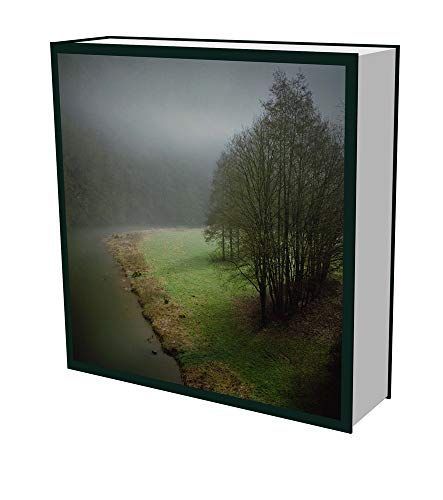
Darren Almond nocturne
An outstand artist with fabulous work, Darren Almond, born in 1971, is without doubt one of the outstanding English contemporary artists; it all started 1997 with his participation in the legendary show Sensation, the inception of the Young British Artists, and led to the Pavilion at the Venice Biennale in 2003 and a Turner Prize nomination two years later. And anyone who caught the empathetic and concentrated retrospective at the Villa Merkel in Esslingen in the summer of 2011 can count his or her blessings. The title of the book and exhibition is derived from the large-format Nocturnes (2004-2010) featuring photographs of moonlit landscapes using long exposure times which evoke Romantic landscapes in their European variants and classical Japanese and Chinese landscape painting in their Asiatic motifs. The absence of shadows in these photographs is visible testimony to a seemingly frozen time, whose light doesn't actually illuminate the scenes as such, but instead hangs upon the open surfaces rather like an emanation from the landscape; a fleeting substance. Thus these photographs can be situated in the place where painting and photography, perception and imagination intersect. At the point where the photographs allow time to become the yardstick of their own perfect genesis, the artist duly formulates the experience of time as an endless repetition of abrasive and lengthy spiritual retreats in his powerful video piece "Sometimes Still" (2010). Darren Almond, running at a pace with his camera, was allowed accompany a Buddhist Tendai novitiate monk on a thirty kilometre nocturnal cross-country run through forests alongside the holy mountain Hiei--an ascetic and simultaneously physical and spiritual exercise of the utmost rigour, which the novitiate had to perform 1,000 times over a period of seven years. In the course of this he had to stop at appointed places and utter prayers, which he then rounded off with two hand claps. The special nature of this publication in cassette form relates to the specific execution of individual works, sometimes as a concertina folder or a simple booklet. Thus all of the photographs in the exhibition are adequately covered and the film receives a form of publication which can been viewed in particular as a mirror of the artist's experiences.